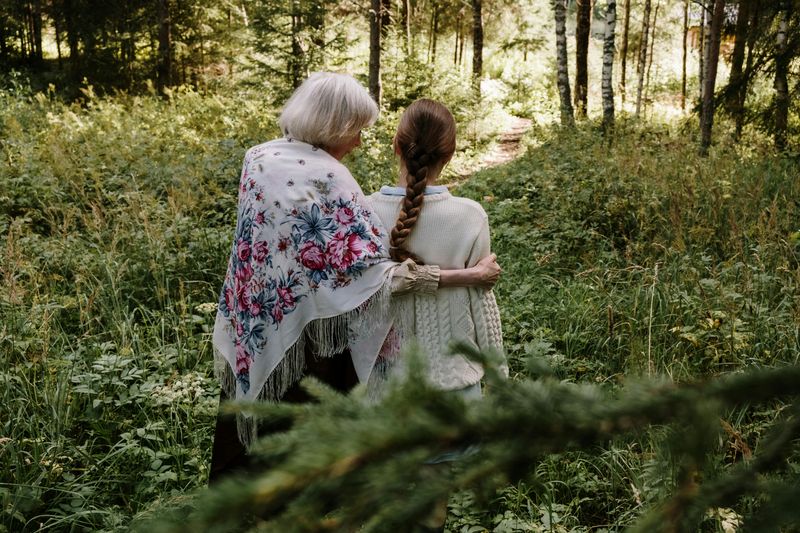12 Timeless Values From Older Generations We Need to Bring Back

Our grandparents and great-grandparents lived by principles that helped them build strong communities, lasting relationships, and meaningful lives. Many of these values have faded in our fast-paced, modern world, but they still hold incredible power to improve our daily experiences. Bringing back these timeless lessons can help us live with more purpose, connection, and happiness.
1. Loyalty to Family and Friends

Standing by the people who matter most used to be non-negotiable. Grandparents stayed married for decades, neighbors helped each other through tough times, and friendships lasted lifetimes.
Today, relationships often feel disposable when things get difficult. We switch friends like channels and give up on commitments too quickly.
Real loyalty means showing up when someone needs you, even when it’s inconvenient. It means keeping promises and being someone others can count on. Building this kind of trust creates a support system that enriches your entire life and makes challenges easier to face together.
2. The Value of Hard Work

Rolling up your sleeves and putting in real effort was once a badge of honor. People took pride in doing their jobs well, no matter how small the task.
Nowadays, everyone wants instant success without the struggle. We look for shortcuts and get discouraged when results don’t happen overnight.
Genuine hard work builds character and teaches resilience. Each challenge you push through makes you stronger and more capable. Success earned through effort feels more rewarding than anything handed to you. Developing a solid work ethic opens doors and creates opportunities that laziness never will.
3. Living Within Your Means

Previous generations knew how to stretch a dollar and save for what they needed. Credit cards weren’t used for everyday expenses, and people waited until they could actually afford something before buying it.
Our culture now encourages constant spending and instant gratification. Debt has become normal, and many people live paycheck to paycheck despite decent incomes.
Frugality isn’t about being cheap—it’s about being smart with money. Saving regularly and avoiding unnecessary debt creates financial freedom and reduces stress. When you live below your means, you build security that protects you during emergencies and gives you choices in life.
4. Respecting Your Elders

Older folks were once treated as treasures of wisdom and experience. Young people listened carefully to their stories and sought their advice on important decisions.
Modern society often dismisses older generations as out of touch. We ignore their experiences and miss out on valuable lessons they learned the hard way.
Showing respect means recognizing that age brings perspective you can’t get anywhere else. Elderly people have survived challenges, raised families, and navigated life’s ups and downs. Their guidance can help you avoid mistakes and make better choices. Taking time to listen creates meaningful connections across generations.
5. Honesty and Integrity

A person’s word used to be as good as a signed contract. People did what they said they’d do, even when no one was watching.
Today, little white lies and broken promises have become acceptable. Many people bend the truth to get ahead or avoid uncomfortable situations.
Integrity means doing the right thing regardless of consequences. When you’re consistently honest, people trust you, and that reputation becomes invaluable. Your character defines who you really are, not your social media presence or material possessions. Living with integrity brings peace of mind that dishonesty can never provide.
6. Practicing Humility

Did you know? The most respected leaders in history were often the most humble. Older generations understood that bragging made you look insecure, not impressive.
Social media has created a culture of constant self-promotion. Everyone showcases their achievements and best moments, creating pressure to seem perfect.
Modesty allows you to appreciate others and learn from everyone around you. Humble people make better friends because they listen more than they talk. They celebrate others’ successes without feeling threatened. Practicing humility doesn’t mean hiding your talents—it means using them to help others rather than just boosting your ego.
7. Learning Patience

Good things take time—this truth guided previous generations through long-term projects and goals. They planted trees knowing they might not live to see them fully grown.
We’ve grown accustomed to instant downloads, same-day delivery, and immediate results. Waiting feels unbearable, and we give up on goals that require sustained effort.
Patience teaches you to enjoy the journey, not just the destination. Building something worthwhile—whether a career, relationship, or skill—requires consistent effort over time. Rushing leads to mistakes and shallow results. When you embrace patience, you develop deeper appreciation for achievements and become more resilient when facing setbacks.
8. Good Manners Matter

Saying please and thank you, holding doors open, and writing thank-you notes were standard practice. Manners showed you cared about making others comfortable.
Casual culture has made politeness seem old-fashioned or unnecessary. People text during conversations, interrupt others, and forget basic courtesies.
Etiquette isn’t stuffy—it’s about showing respect through small actions. Good manners make social situations smoother and help you make positive impressions. They demonstrate consideration for others’ feelings and time. Simple gestures like making eye contact, saying thank you, and being punctual show you value the people around you and create more pleasant interactions for everyone.
9. Home-Cooked Family Meals

Families once gathered around the table every evening to share food and conversation. Cooking from scratch was normal, not a special occasion.
Busy schedules and convenient takeout have replaced home cooking. Many families rarely eat together, and kids grow up without learning basic cooking skills.
Preparing meals at home saves money and improves health compared to restaurant food. More importantly, cooking together and sharing meals strengthens family bonds. Conversation flows naturally around the dinner table, helping everyone stay connected. Teaching kids to cook gives them life skills and creates memories they’ll treasure forever.
10. Saving for Tomorrow

Previous generations automatically saved a portion of every paycheck. Emergency funds and retirement accounts weren’t optional—they were essential parts of responsible adult life.
Credit card debt and living beyond our means have become normalized. Many people have little or no savings despite earning decent incomes.
Financial responsibility means planning for unexpected expenses and future needs. Starting small with regular savings builds security over time. Avoiding unnecessary debt keeps you free to make choices based on what’s best, not what you can afford. Building savings provides peace of mind and protects you when life throws curveballs your way.
11. Handwritten Correspondence

Receiving a handwritten letter or card felt special because someone took time to sit down and write personally to you. People kept these notes for years as treasured keepsakes.
Quick texts and emails have replaced personal correspondence. Messages feel rushed and impersonal, easily deleted and quickly forgotten.
Writing by hand forces you to slow down and think about what you want to say. A handwritten note shows genuine care that digital messages can’t match. Whether thanking someone for a gift or expressing sympathy, personal notes make a lasting impression. This simple practice strengthens relationships and shows people they matter to you.
12. Face-to-Face Conversations

People once resolved conflicts, shared news, and built friendships through actual conversations. Looking someone in the eye created understanding that written words couldn’t capture.
Texting and social media have become our primary communication tools. Important conversations happen through screens, losing emotional nuance and connection.
Direct communication builds stronger relationships because you read body language and hear tone of voice. Difficult conversations become easier when you’re face-to-face rather than hiding behind a screen. Making time for in-person interactions shows people they’re worth your full attention. Real conversations create memories and connections that digital communication simply cannot replicate.

Comments
Loading…